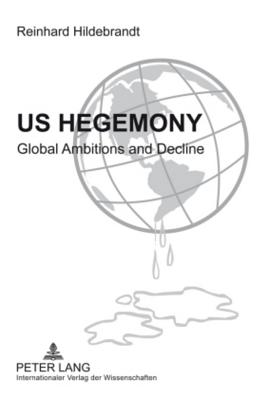With the end of the ‘East-West’ conflict in 1990, an entirely new constellation seemed to emerge for the first time in the history of mankind. This was perceived by the power elite in the USA as a useful challenge to lend its – until then territorially restricted – hegemony a global dimension. From the perspective of the US elites (Francis Fukuyama), a period of indefinite American control over the rest of the world, in which there would be no more scope for potential rivals to emerge, would characterize the end of history. But some years later, the USA had to accept that the dual hegemony it had built up together with the Soviet Union was fundamental to the continued existence of American hegemony. Its inability to sustain a global hegemony revealed itself in the severe setbacks it suffered in the three wars waged in Iraq, Afghanistan and against the so-called international terrorists. Undeterred by the USA’s imminent isolation, influential US experts insisted that US policies were still in line with the US’ general perception of its role in the world: firstly to work for the good of the world and, secondly, to exercise its military might even when the rest of the world opposed it. Ignored for a long time by these very experts were the emergence of the interregional Asian triangle (China, India, Russia), Europe’s reorientation and, in consequence, the USA’s relegation as a hegemonic power.
With the end of the ‘East-West’ conflict in 1990, an entirely new constellation seemed to emerge for the first time in the history of mankind. This was perceived by the power elite in the USA as a useful challenge to lend its – until then territorially restricted – hegemony a global dimension. From the perspective of the US elites (Francis Fukuyama), a period of indefinite American control over the rest of the world, in which there would be no more scope for potential rivals to emerge, would characterize the end of history. But some years later, the USA had to accept that the dual hegemony it had built up together with the Soviet Union was fundamental to the continued existence of American hegemony. Its inability to sustain a global hegemony revealed itself in the severe setbacks it suffered in the three wars waged in Iraq, Afghanistan and against the so-called international terrorists. Undeterred by the USA’s imminent isolation, influential US experts insisted that US policies were still in line with the US’ general perception of its role in the world: firstly to work for the good of the world and, secondly, to exercise its military might even when the rest of the world opposed it. Ignored for a long time by these very experts were the emergence of the interregional Asian triangle (China, India, Russia), Europe’s reorientation and, in consequence, the USA’s relegation as a hegemonic power.
Get US Hegemony by at the best price and quality guranteed only at Werezi Africa largest book ecommerce store. The book was published by Peter Lang AG and it has pages. Enjoy Shopping Best Offers & Deals on books Online from Werezi - Receive at your doorstep - Fast Delivery - Secure mode of Payment
 Jacket, Women
Jacket, Women
 Woolend Jacket
Woolend Jacket
 Western denim
Western denim
 Mini Dresss
Mini Dresss
 Jacket, Women
Jacket, Women
 Woolend Jacket
Woolend Jacket
 Western denim
Western denim
 Mini Dresss
Mini Dresss
 Jacket, Women
Jacket, Women
 Woolend Jacket
Woolend Jacket
 Western denim
Western denim
 Mini Dresss
Mini Dresss
 Jacket, Women
Jacket, Women
 Woolend Jacket
Woolend Jacket
 Western denim
Western denim
 Mini Dresss
Mini Dresss
 Jacket, Women
Jacket, Women
 Woolend Jacket
Woolend Jacket
 Western denim
Western denim
 Mini Dresss
Mini Dresss





































